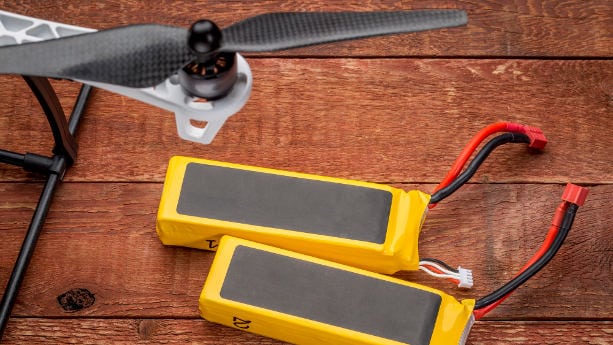Gel Battery Advantages – Introduction, Life Cycle and Comparison
Jul 07, 2021 Pageview:1046
Batteries have come a long way today. And they play a vital role in powering out devices. Different batteries are designed for different use, which means one must choose the right one.
One type of battery that may not be too common is the gel battery. They are used in powering special devices due to their high capacity and durability.
A gel battery is a rechargeable, lead acid battery with the electrolyte in an organic solvent. These batteries have become quite common today due to the many advantages they offer.
What are the advantages of gel batteries?
There are many advantages of gel batteries over traditional wet lead acid batteries. One benefit is that they typically don't leak toxic chemicals like sulfuric acid and can be used indoors without ventilating equipment or risk corrosion on metal parts because there isn't any liquid inside them. Gel battery also do not need water added as often since most of their electrolyte (the substance in charge of converting chemical energy into electrical energy) stays within its cells at all times instead of leaking out when charged/discharged.
Here is a breakdown of these advantages:
Stable in Extreme Temperatures
Gel batteries are non-leaking and don't have any water inside them. One advantage is that gel batteries are more stable in extreme temperatures than traditional wet lead acid batteries, so if you live somewhere where the temperature ranges wildly throughout the year, then it's a good idea to go with one of those.
They can be used without ventilation equipment or corrosion on metal parts.
Gel batteries do not need to be vented since they do not leak toxic chemicals like sulfuric acid, so you won't need ventilating equipment in order for it to work. This also means that there's no risk of corrosion on the metal parts because gel battery doesn't contain liquid electrolyte which is what causes this problem with wet lead acid batteries.
No Requirement to Add Water Often
As stated before, most of their electrolytes stay within its cells at all times making them less likely to lose charge due to being discharged/charged constantly, so as a result you will rarely need to add water. This means you won't have to worry about overfilling or undercharging your gel battery which is a common problem with wet lead acid batteries.
Non-leaking and Non-spillable
Gel batteries will not leak because they don't have any liquid inside them, this makes it easier for the user since there's no risk of leakage while charging/discharging like traditional wet lead acid batteries do. It also doesn’t spill due to its construction so it can be used without worries in areas where spills would cause problems such as public spaces or homes that are furnished with valuable items.
How long will Gel battery last?
A gel battery is stronger than traditional batteries in terms life expectancy. They are made from a sulphuric acid and lead oxide gel. A 12-volt battery will last about two years, while a 24volt will last up to five years.
Also, it depends on how you use the batteries. Using a gel battery well includes charging it up, keeping the voltage to a minimum and using it only in vehicles that require lead acid batteries.
You should change your battery every year if you use it often or monthly if not used much at all. This is especially important in cold temperatures where batteries die faster.
The battery should not be used for power tools or charging devices such as computers because they may overload the gel battery which can harm them by exploding. Gel batteries also have less chance of leaking than traditional batteries if you use them correctly, but many people still worry about this happening with their gel battery no matter how little leakage there is.

Are gel batteries better?
Yes. Gel batteries are better in many aspects of their chemistry compared to other types of batteries.
Gel cells are a type of lead-acid battery that has an electrolyte consisting of either sulfuric acid or, more commonly, AGM (Absorbed Glass Mat) technology and water in its gelatinous form to create the necessary chemical reactions to produce electricity. Gel cell batteries have a much higher energy density than flooded (liquid) lead-acid types due to their thicker plates which allow for increased surface area on which electrons can be transferred within the battery's internal structure.
This also enables them to discharge at a much faster rate as well meaning they're great if you need power when it's time for peak performance. These benefits make these invaluable tools with today's electric cars and renewable energy sources.
The main difference is that the gel is not in a liquid or paste form like flooded cells. Instead, it's suspended within a fiberglass mat inside of the battery container and surrounded by an electrolyte solution consisting of sulfuric acid and water which then reacts when electricity is drawn from the battery to produce power.
This type of lead-acid cell was originally developed around 2000 as a way to create more efficient batteries for use with renewable energy sources such as solar panels where much faster discharge rates are needed without having to worry about harming any other components on site due to accidental leaks. In recent years, their popularity has grown considerably thanks to its efficiency during peak performance times while also being safer than traditional flooded types.
Leave Message
Hottest Categories
-
Hottest Industry News
-
Latest Industry News










